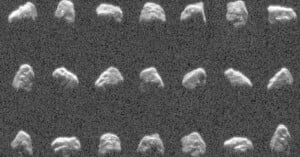
NASA Images Hazardous Asteroids That Sailed Close to Earth
Scientists fret about the possibility of an asteroid hitting Earth with catastrophic consequences, just ask the dinosaurs.

Scientists fret about the possibility of an asteroid hitting Earth with catastrophic consequences, just ask the dinosaurs.
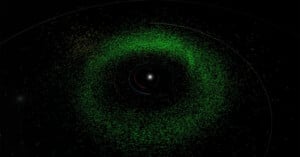
Artificial intelligence is used for a lot more generating fake images, scientists also use it to locate patterns in data that would otherwise have been impossible to see. Astronomers also use AI to improve image quality and analyze space photos. Some AI may even help save Earth from a catastrophic asteroid.
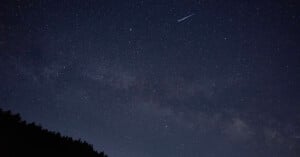
NASA has shared its monthly update for what skygazers should look for in the night sky in December.
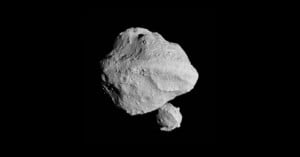
NASA's Lucy mission, the first mission to explore Jupiter's Trojan asteroids, returned photos from its first encounter earlier this month.
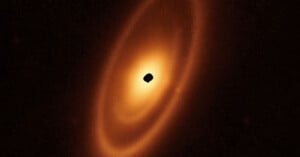
The James Webb Space Telescope has achieved another milestone by capturing an image of the first asteroid belt ever seen outside the Solar System.
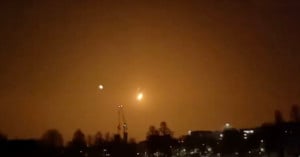
A small asteroid lit up the skies of England and France exploding into a fireball as it fell into Earth's atmosphere.
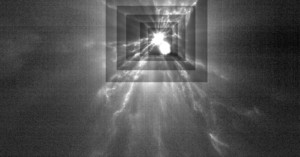
NASA says its Double Asteroid Redirection Test (DART) successfully altered an asteroid's orbit, proving that planet Earth can defend itself against an incoming meteor.
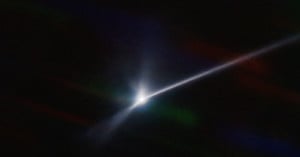
After NASA successfully crashed a spacecraft into Dimorphos last week, the asteroid now has a 6,000 mile-long tail made of dust and debris.
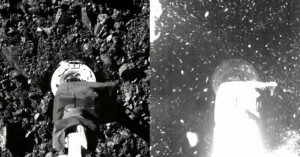
NASA has shared footage that its OSIRIS-REx spacecraft captured when it landed on the asteroid Bennu which shows that the surface was a lot less stable than anticipated, leading the space agency to compare it to a "plastic ball pit."
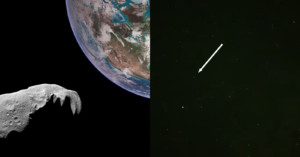
A massive and "potentially hazardous" asteroid measuring 0.68 miles (1.1km) wide flew past the Earth at over 43,000 miles per hour on Tuesday. Photographer Andrew McCarthy managed to capture real-time footage showing what the flyby looked like in the night sky.
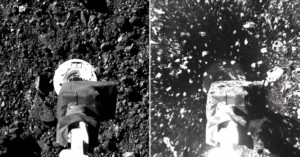
On Tuesday, October 20th, NASA made history when the OSIRIS-REx mission successfully completed a "touch-and-go" sample collection maneuver with asteroid 101955 Bennu over 200 million miles away from Earth. And now, we have the timelapse to prove it.
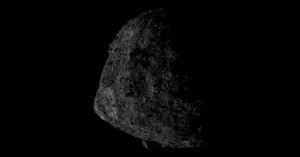
After photographing Earth and the Moon from 71 million miles away back in January, NASA’s OSIRIS-REx spacecraft is back again with a new photo of its target asteroid, Bennu, shot from an incredibly close distance of just 0.4 miles (690m) away.
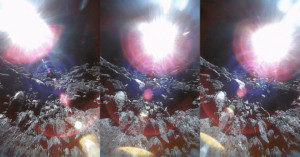
A week after giving us the first photo from the surface of asteroid 162173 Ryugu, Japan's MINERVA rovers have just sent back new views of the asteroid's surface, including the first video ever from an asteroid's surface.
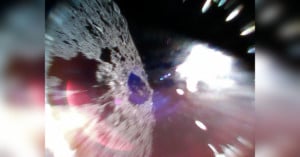
Japan just made history by landing two small rovers on the surface of an asteroid hurtling through space 174 million miles (280 million km) from Earth, and here's the first published photo from the rovers shot from the surface of 162173 Ryugu.
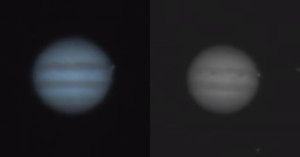
Two amateur astronomers have captured what appears to be an explosion on Jupiter that resulted from a large asteroid impacting the planet.
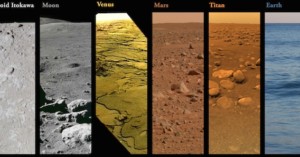
Oh the places you'll go... Dr. Seuss may not have written those words to humankind as a whole, but he may as well have. As the ESA and its Rosetta Spacecraft prepare to land, for the first time ever, on a comet, this image serves as an awe-inspiring reminder of the places we've already been.
Namely: An asteroid, the Moon, Mars, Venus, Titan and, of course, our own mother Earth.
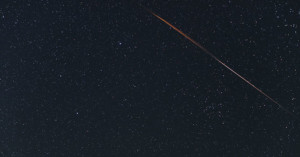
On Friday, February 15th, 2013, near-Earth asteroid 2012 DA14 did a flyby of our planet -- the closest approach ever of an object of its size (30 meters in diameter). Photographer Colin Legg of Western Australia decided to capture the close pass in a time-lapse video, and set up his cameras after midnight around 220 miles east of Perth.
He ended up capturing the amazing video above, while captures a shooting star burning a trail across the sky while DA14 slowly travels through the shot. The video also shows how much random stuff in the sky you can see if you have eyes/cameras sensitive enough to see it.